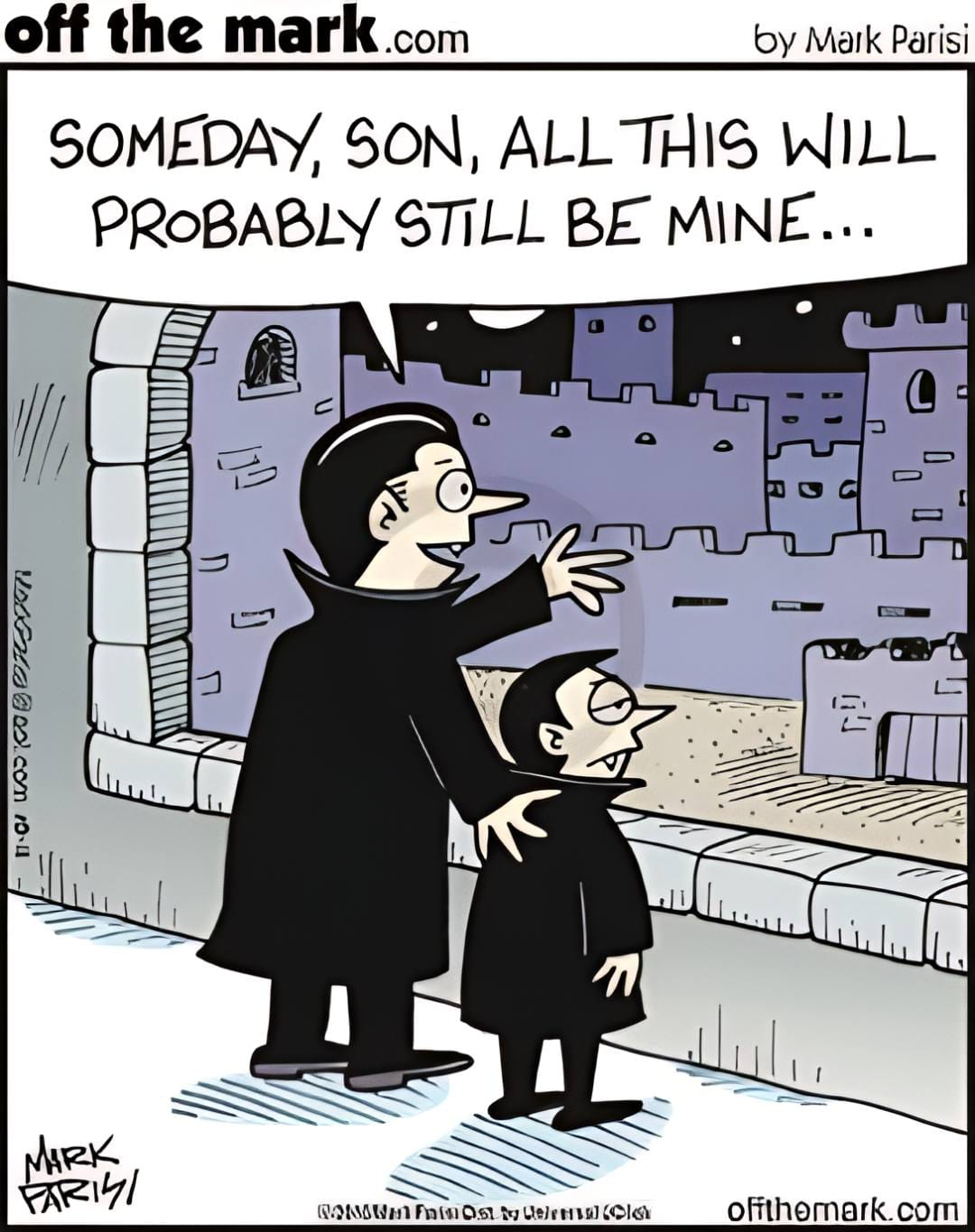this post was submitted on 20 Jul 2024
662 points (99.1% liked)
Comic Strips
11974 readers
2122 users here now
Comic Strips is a community for those who love comic stories.
The rules are simple:
- The post can be a single image, an image gallery, or a link to a specific comic hosted on another site (the author's website, for instance).
- The comic must be a complete story.
- If it is an external link, it must be to a specific story, not to the root of the site.
- You may post comics from others or your own.
- If you are posting a comic of your own, a maximum of one per week is allowed (I know, your comics are great, but this rule helps avoid spam).
- The comic can be in any language, but if it's not in English, OP must include an English translation in the post's 'body' field (note: you don't need to select a specific language when posting a comic).
- Politeness.
- Adult content is not allowed. This community aims to be fun for people of all ages.
Web of links
- !linuxmemes@lemmy.world: "I use Arch btw"
- !memes@lemmy.world: memes (you don't say!)
founded 1 year ago
MODERATORS
you are viewing a single comment's thread
view the rest of the comments
view the rest of the comments

I think he mean the rich in general
I really don't think they originated as some sort of proto-communist idea. It's just a primal human fear- the dead coming back to life to sap the vitality of the living.
I thought it was an allegory for disease. Spreads person to person, water repels it and don't invite infected people into your house
Also garlic has antibiotic properties
There certainly is evidence (see the link I posted elsewhere in this thread about the body in the plague pit) that disease was sometimes blamed on vampirism, but the water and garlic things are in no way universal. Honestly, the only universal thing I can tell applies to all vampires is 'drains you of something essential to your life.' It's not even always a human creature or drinking blood- although I suppose you could argue that such things aren't vampires- but there doesn't seem to be any one set of things that repel a vampire or end its attacks.
It looks like both are true. Super people that are above normal ones, bleeding us dry just bc they can - nobility - and outright needing our work in order to sustain themselves, but also not needing people or thing on an individual basis at the same time, thus despite their need for us to continue their own existence not really caring much about us at all. The latter may have been added by Voltaire, but it forms a large part of our current understanding of vampires, and was a very natural extension.
Also the nobility could read, so had access to thousands of years of history, while a common peasant who could not read had to learn everything by themselves if they were not taught it by their village. Plus the former had access to healthcare and adequate nutrition thus lived far longer lives by comparison. So like if a "generation" might have been 10 years for a peasant, then a 60 year old noble would have been 6 generations past, enough for stories about them to be legendary in the villages, almost like they were immortal, plus their family history stretched back even further, long beyond the collective memory of the peasants as old by stories. And too those could start to blend together so like Richard III taking over after Richard II after Richard, stretching back hundreds of years.
But vampires weren't generally considered to be nobility. That was Bram Stoker deciding to mix a real person (not a count, but a prince) and vampire legends.
You can read about vampire folklore going back to Mesopotamia. Nobility being involved was not really a common thread.
https://en.wikipedia.org/wiki/Vampire_folklore_by_region
Even the earliest documented case of hysteria over someone claimed to be a vampire (which is pretty recent) involved a peasant being the one accused: https://en.wikipedia.org/wiki/Petar_Blagojevi%C4%87
Even in the most well-likely case of someone buried to prevent them from becoming a vampire, there is no indication that she was nobility.
https://news.artnet.com/art-world/in-a-17th-century-polish-grave-archaeologists-have-discovered-the-bones-of-a-woman-believed-to-be-a-vampire-2171262
I'm sorry, it's just not true.